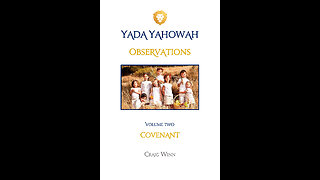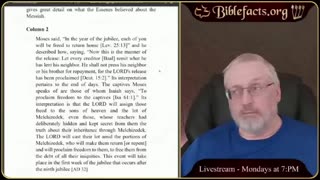Unlocking the Secrets of Surah NAS: The Viral Power of Divine Protection with English meaning
Surah An-Nas
Ayahs:6
Revelation Place: Mecca or Makkah
Name
Although these two Surahs of the Qur'an are separate entities and are written in the Mushaf also under separate names, yet they are so deeply related mutually and their contents so closely resemble each other's that they have been designated by a common name Mu'awwidhatayn (the two Surahs in which refuge with Allah has been sought). Imam Baihaqi in Dala'il an-Nubuwwat has written that these Surahs were revealed together, that is why the combined name of both is Mu'awwidhatayn. We are writing the same one Introduction to both, for they discuss and deal with just the same matters and topics. However, they will be explained and commented on separately below.
Theme and Subject-Matter
Conditions under which these two Surahs were sent down in Makkah were as follows. As soon as the Holy Prophet (PBUH) began to preach the message of Islam, it seemed as though he had provoked all classes of the people around him. As his message spread the opposition of the disbelieving Quraish also became more and more intense. As long as they had any hope that they would be able to prevent him from preaching his message by throwing some temptation in his way, or striking some bargain with him, their hostility did not become very active. But when the Holy Prophet disappointed them completely that he would not affect any kind of compromise with them in the matter of faith, and in Surah Al-Kafirun they were plainly told: "I do not worship those who you worship nor are you worshipers of Him Whom I worship. For you is your religion and for me is mine", the hostility touched its extreme limits. More particularly, the families whose members had accepted Islam, were burning with rage from within against the Holy Prophet. They were cursing him, holding secret consultations to kill him quietly in the dark of the night so that the Bani Hashim could not discover the murderer and take revenge; magic and charms were being worked on him so as to cause his death, or make him fall ill, or become mad; satans from among the men and the jinn spread on every side so as to whisper one or another evil into the hearts of the people against him and the Qur'an brought by him so that they became suspicious of him and fled him. There were many people who were burning with jealousy against him, for they could not tolerate that a man from another family or clan than their own should flourish and become prominent. For instance, the reason why Abu Jahl was crossing every limit in his hostility to him has been explained by himself: "We and the Bani Abdi Manaf (to which the Holy Prophet belonged) were rivals of each other: they fed others, we too fed others; they provided conveyances to the people, we too did the same; they gave donations, we too gave donations, so much so that when they and we have become equal in honor and nobility, they now proclaim that they have a Prophet who is inspired from the heaven; how can we compete with them in this field? By God, we will never acknowledge him, nor affirm faith in him". (Ibn Hisham, vol. I, pp. 337-338).
Such were the conditions when the Holy Prophet (PBUH) was commanded to tell the people: "I seek refuge with the Lord of the dawn, from the evil of everything that He has created, and from the evil of the darkness of night and from the evil of magicians, men and women, and from the evil of the envious", and to tell them: "I seek refuge with the Lord of mankind, the King of mankind, and the Deity of mankind, from the evil of the whisperer, who returns over and over again, who whispers (evil) into the hearts of men, whether he be from among the jinn or men." This is similar to what the Prophet Moses had been told to say when Pharaoh had expressed his design before his full court to kill him: "I have taken refuge with my Lord and your Lord against every arrogant person who does not believe in the Day of Reckoning." (Al-Mu'min: 27). And: "I have taken refuge with my Lord and your Lord lest you should assail me." (Ad-Dukhan;20).
On both occasions, these illustrious Prophets of Allah were confronted with well-equipped, resourceful and powerful enemies. On both occasions they stood firm on their message of Truth against their strong opponents, whereas they had no material power on the strength of which they could fight them, and on both occasions they utterly disregarded the threats and dangerous plans and hostile devices of the enemy, saying: "We have taken refuge with the Lord of the universe against you." Obviously, such firmness and steadfastness can be shown only by the person who has the conviction that the power of His Lord is the supreme power, that all powers of the world are insignificant against Him, and that no one can harm the one who has taken His refuge. Only such a one can say: "I will not give up preaching the Word of Truth. I care the least for what you may say or do, for I have taken refuge with my Lord and your Lord and Lord of all universe."
-
 19:34
19:34
Waking the World up
1 month agoThe Secret Knowledge Jesus was trying to Reveal – Concealed Knowledge of the Vatican & Freemasons
2.07K7 -
 3:07:40
3:07:40
Stevens
3 months agoYYV2C12 Yada Yahowah Observations Covenant Knowing It Has Been Revealed…
36 -
 5:22
5:22
Jesus' Love Letters ... Liebesbriefe
2 months agoDoctrines of Demons… Clever Deceptions such as New Age, Buddhism etc. 🎺 Trumpet Call of God
67 -
 47:56
47:56
Jesus' Love Letters ... Liebesbriefe
2 months agoCharacteristics of true and false Prophets, Teachers and Priests 🎺 Summary of Statements of the Lord
1822 -
 1:53:11
1:53:11
BeSoRaHofTrUtH7
3 months agoTHE PRAYER OF AGREEMENT INFINANT ENDLESS SOURCE OF POWER
31 -
 3:53
3:53
YAHUSHUASCOMING8
3 months agoProphecy 70 (key to YAH'S Arsenal) What Will YAHUVEH Do When Calamity Comes Knocking At Your Door? "many times I use this ministry as a barometer" A "Jer 6:27-30 test"
61 -
 24:30
24:30
YAHUSHUASCOMING8
3 months ago1998 Amightywind Prophecy 18 - Beware The Veil Of Darkness That Has Come From Hell! "Children are being force fed violence, death, destruction, homosexuality, porn,"
443 -
 14:47
14:47
D.E.B.S. Homestead- In God We Trust- GOD Loves You, I Love You & Have a Wonderful Day
1 month agoAnd they shall call His name Emmanuel—which, when translated, means, God with us.
34 -
 6:29
6:29
FreakSense TV
4 months agoSecret Journey by The Police ~ The Kingdom of God is Within You in Secret...
9.81K7 -
 52:07
52:07
The Ascension Diet Eating To Ascend - a resource for truthseekers
2 months agoDead Sea Scroll 11Q13 - ZION IS THOSE WHO UPHOLD THE COVENANT
948